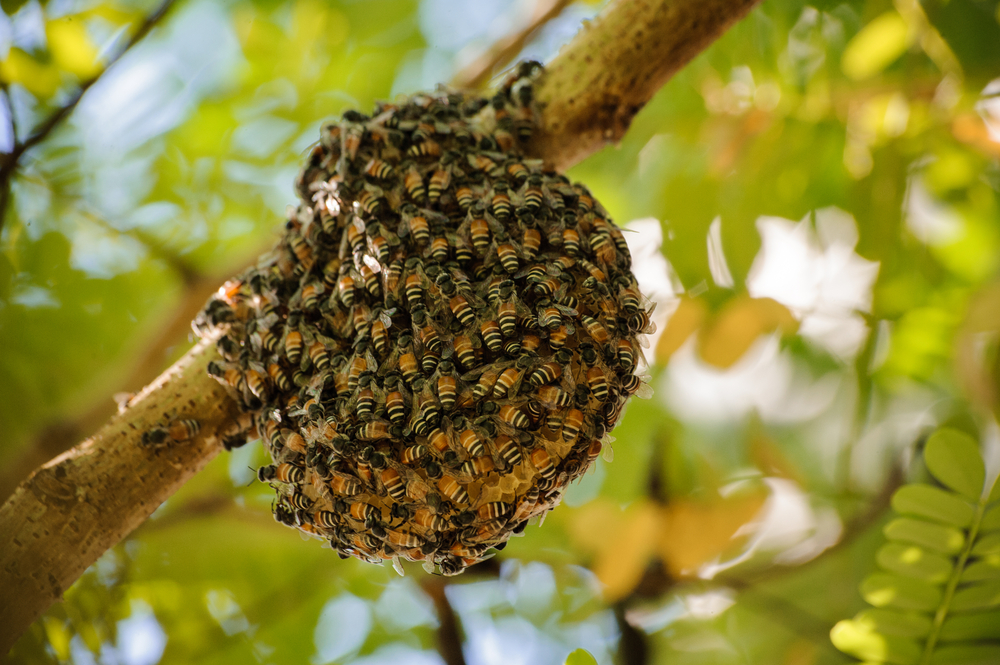“Beauty, yes, but not only.” So begins Eye of the Beholder (Paraclete Press: October 2018), the new poetry collection from Luci Shaw—a volume that is both gentle and transcendent. Shaw’s poems are reminders of daily divinity: the wonders we might see if only we look closely enough, long enough. Her poem “Signals” captures this way of seeing: “Later / he showed me himself as a / honeycomb with bees, / and when I didn’t respond / he presented me with / a hillside of trees with / red and yellow leaves, and / finally I understood.”
Shaw is a prolific poet—at 90, she’s published over ten collections over the years, work that has originally appeared in publications like The Christian Century, Writer’s Almanac, Books & Culture, Image. Her poetry is devotional without being overly sentimental, and never trite.
Born in Britain, Shaw has said that she “always felt like an outsider” growing up in Canada, and later living in America. As a young woman, “not the treasured son and heir of the family in that British setting,” she felt like she was supposed to become merely a “good wife”—and not a poet. “To try to keep this flame of poetry alive—because it wouldn’t go away—I had to write in a kind of isolation,” she recalls, and that sense complemented her Episcopalian faith. She feels as if “the Holy Spirit is my muse,” and has spoken about how “the Spirit is holy breath, and that this breath carries my ideas into words, from my mouth into the air and into someone else’s ear.”
This sense of herself as poetic conduit feels particularly appropriate for Eye of the Beholder, which begins with her introductory essay, “Prophets & Poets.” In our “mechanistic society trammeled with political conflicts and a waning consciousness of the sublime,” Shaw believes that “poets—and particularly poets of faith—have a similar mandate” as the Biblical prophets: to look, to imagine, to document, and to share.
Ambitious sentiments, but Shaw’s own kenotic verses open from the self and move outward and upward—a humbling act. Her narrators are faith-filled, but imperfect. “Sometimes a prayer comes out / half-chewed, like a tough crust / that sticks in the teeth.” In a later poem, she revisits those flawed prayers, but reminds readers that our “troubles eat at God like nails.” Our pain is not ignored; “He never fails / but reassures he’ll heal again, / again, again, again and yet again.”
Shaw is also a fine poet of the aging body. The narrator of “Regrettable” feels “unreliable. My fingers shake, / fumble.” She drops her earring while taking it off. Her handwriting has become illegible. She remembers faces and voices, but names have wandered away. “I can’t think what to do. I can’t / think. I am unlikely.” The narrator ends the poem looking in the mirror, wondering if “the marvels seen and written will / live on, or simply dry up, abandoning / their juiciness like dishwater down / the drain. Or damp bath towels / evaporating on the line, their moisture / vanishing in the air.”
She is a poet of “incremental life”—to borrow her own words. She has longed for “more celebratory poetry,” and Eye of the Beholder puts into practice what she has gently preached. Poems like “Testify” are finely written, but also serve a practical end: they help us see better. “Though my hearing is never / acute enough to detect / the soft script of the fly’s footfalls / as it dances on the window, / or to record the swift play of wings, / the glass knows.” There is a moving, churning world around us. Maybe it is up to poets to act as prophets of vision. “Like my mother’s voice when she / spoke truth to me. The whisper of / small roughage, and crumbs / left on the table between us.” Eye of the Beholder brings us to that table, and offers whispers of truth in humble lines.
Nick Ripatrazone has written for Rolling Stone, Esquire, The Atlantic, and is a Contributing Editor for The Millions. He is writing a book on Catholic culture and literature in America for Fortress Press.
Start your day with Always Forward, our award-winning e-newsletter. Get this smart, handpicked selection of the day’s top news, analysis and opinion, delivered to your inbox. Sign up absolutely free today!

